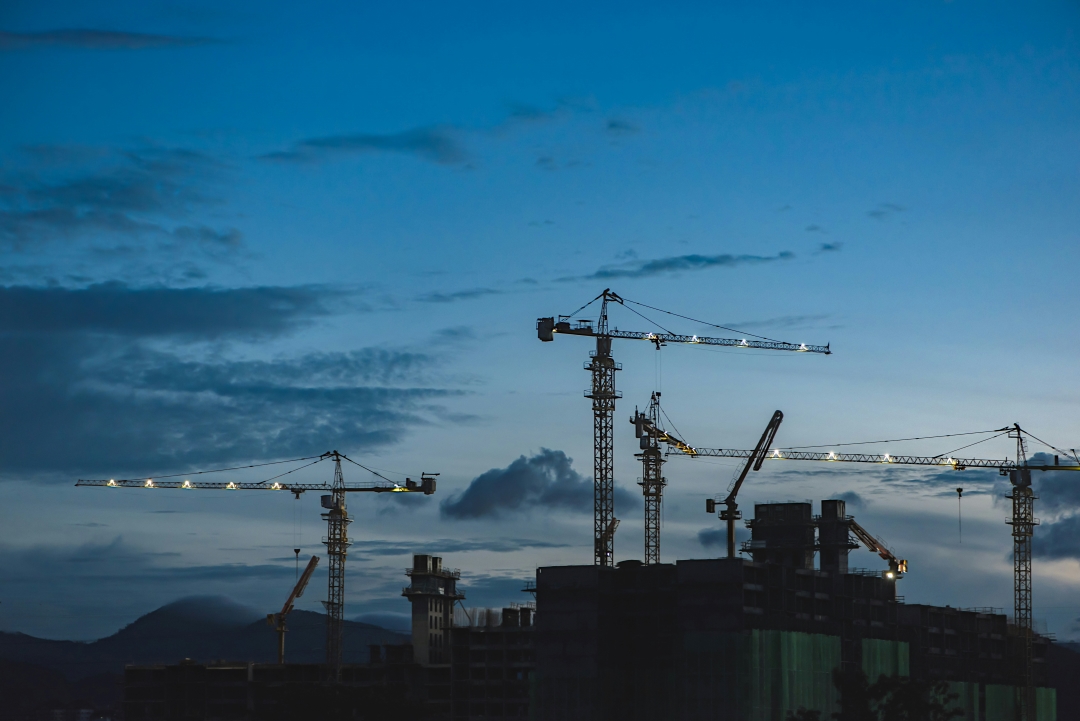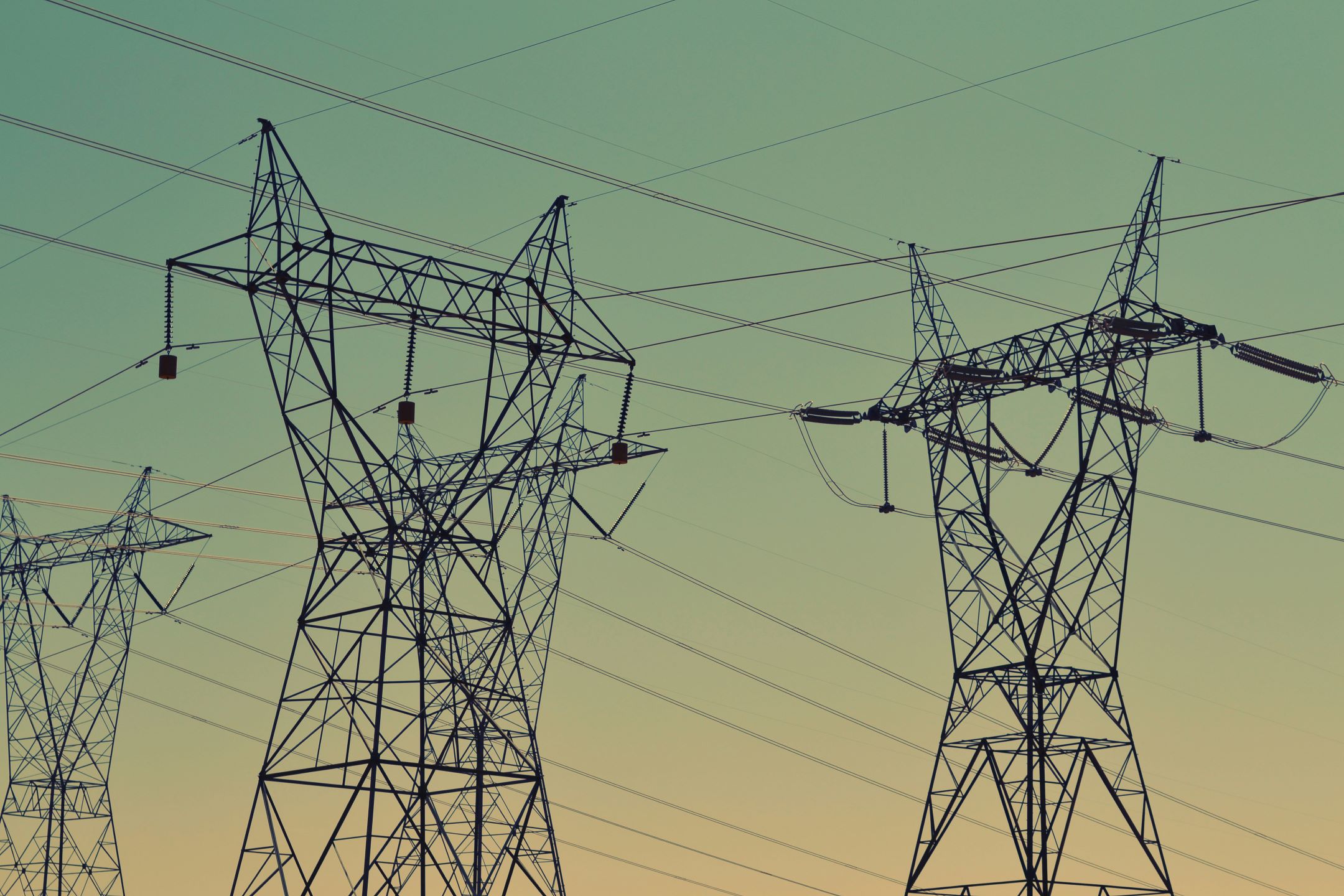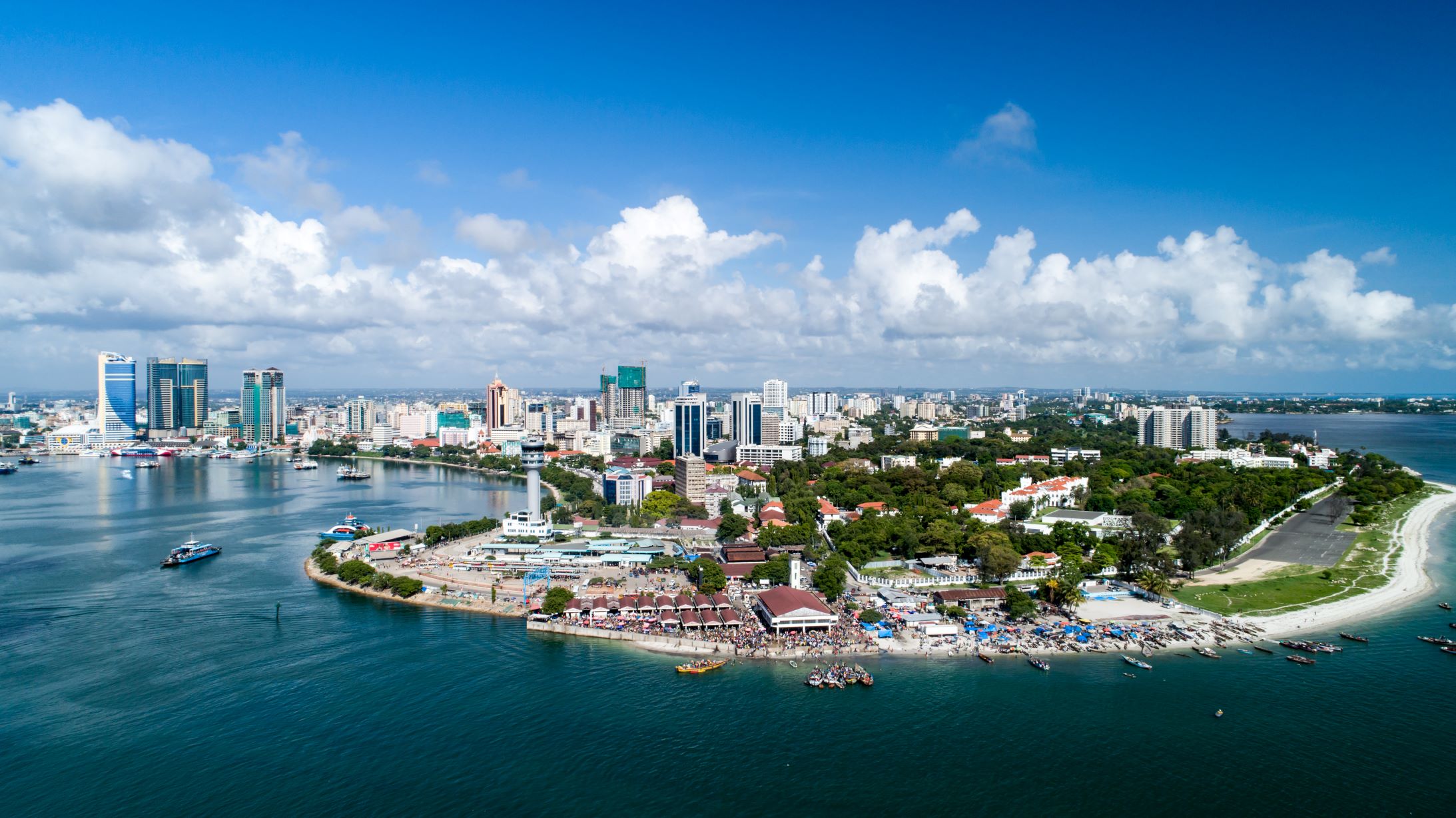Africa
Africa’s Energy Investment Landscape Dominated by Renewable Projects
Renewable energy projects dominate Africa’s energy sector in number, with a total of 153 projects between 2020 and 2023. Overall, ongoing infrastructure projects totalling USD 353 billion in investments spanning 165 projects have been committed to. But weak legislative frameworks and the perception of a lack of projects are hampering more investment in Africa. Hendrik Malan, Africa CEO – Frost & Sullivan, South Africa, said no investor will be interested without longer-term power agreements. He was speaking on the closing day of Enlit Africa 2023, focusing on the topic, Tracking Project Development in Africa. “Africa is truly the last growth frontier and is of great interest to many companies we deal with. But they are concerned about value versus risk.” Despite the two main concerns, Malan said, “clearly, we have enough projects.” It is more a case of a “lack of fit” in terms of a potential investor’s risk and profit profile. “There are also certain parameters they have set up that create a mismatch.” Despite these challenges, Malan said that Africa is well placed to service the European markets due to the decarbonisation drive there.
Source: ESI Africa
Africa
Africa Set to be the Second-Fastest Growing Region After Asia
Africa is set to be the second-fastest growing region in the world after Asia in 2023-24, demonstrating the resilience of its economy despite dealing with multiple global shocks. But the projected growth will depend on global conditions and the continent’s ability to bolster its economic resilience, the African Development Bank’s (AfDB) African Economic Outlook 2023 report has found. The report, launched recently, forecasts that Africa will consolidate its post-COVID-19 pandemic recovery to 4.3% GDP growth in 2024 from 3.8% in 2022. Some 22 countries will record growth rates above 5%, it says. It recommends robust policy actions, including incentivising green industries and providing guarantees at scale to de-risk private sector investments in managing natural capital across the continent. The launch, attended by African leaders, experts and development partners, was one of the highlights of the AfDB’s Annual Meetings in Sharm El-Sheikh, Egypt. The AfDB’s chief economist and vice president for Economic Governance and Knowledge Management, Professor Kevin Urama, presented the report’s findings, outlining several potential policy actions for stimulating more private sector financing for climate and green growth in Africa.
Source: Nairametrics
Africa
World Bank Suggests African Countries Ripe for Carbon Tax Implementation
In its State and Trends of Carbon Pricing report for May 2023, the World Bank highlighted Nigeria and five other African countries as suitable for the adoption of carbon taxes. Currently, South Africa is the sole country on the continent that has implemented carbon tax policies. However, there is a growing interest in carbon taxes and emissions trading systems (ETS) throughout Africa. The report stated: “Almost every world region has low- and middle-income countries considering carbon taxes or ETSs. While South Africa has been the only country to implement a carbon tax in Africa thus far, Botswana, Côte d’Ivoire, Gabon, Morocco, Nigeria, and Senegal have all shown an appetite to adopt either a carbon tax or an ETS.” Additionally, the report mentioned that Côte d’Ivoire and Senegal have conducted feasibility and impact assessment studies with support from international donors, while Botswana continues to explore the feasibility of implementing a carbon tax. Meanwhile, both Gabon and Nigeria have published legal frameworks to establish their respective domestic ETSs. The report emphasised Nigeria’s Climate Act, which establishes a council with the authority to establish an ETS. It further noted that if these countries initiate carbon pricing efforts, the global landscape of carbon tax adoption could undergo significant changes.
Source: AfDB
Africa
Africa’s Fintech Market to Reach USD 65 Billion in Revenue by 2030
The African fintech market is projected to reach USD 65 billion by 2030, representing a 13-fold increase over 2021, according to a new study conducted by consulting firm Boston Consulting Group (BCG) and QED Investors, a global VC based in the US. This will make it the world’s fastest-growing region, alongside Latin America, which is predicted to see 12.5 – fold growth. North America, in contrast will only see a 4.4 times increase, although revenues there and in the Asia Pacfic region will remain far ahead of the rest of the world. The study also projects a compound annual growth rate (CAGR) of 32% for African fintech revenue until 2030. Aparna Pande, a consultant at BCG and co-author of the report, explains that the projections rely heavily on these two proprietary data sources, along with the input of internal and external experts, the experience of VC partner QED in the sector, and interviews with top global fintech CEOs to test the projections against historical and expected performance.
Source: Africa Business
Algeria
Algeria Aims to Reach USD 13 Billion in 2023 in Non – Hydrocarbon Exports
Algeria has recorded an unprecedented leap forward in its non-hydrocarbon exports, which are expected to reach USD 13 billion in 2023, ten times their volume three decades ago, as a result of its policy of diversifying its economy away from dependence on oil revenues. Notably, in the first eleven months of 2022, non-hydrocarbon exports exceeded 10% of total exports, setting a historic precedent for Algeria, which has managed to export its products to all regions of the world. Fertilisers top the exports at USD 1.7 billion, iron and steel at over USD 500 million, cement at nearly USD 400 million, and detergents at over USD 48 million, up from USD 1 million in 2021. In addition, in high demand on world markets, Algerian dates were exported at nearly USD 80 million in 2021. According to expert Ishak Kharchi, “Thanks to political will, Algeria can reach the target of USD 13 billion in non-hydrocarbon exports”. However, to achieve this objective, certain conditions must be met, including increasing the growth rate to over 4.5%, increasing productivity, strengthening transport and logistics services in an economical way and promoting the national product through exhibitions, explained the expert.
Source: Algeria Invest
Egypt
Egypt Signs Agreement to Build a USD 10 Billion Wind Farm
Egypt’s New and Renewable Energy Authority signed an agreement with Abu Dhabi Future Energy Company PJSC (Masdar) and Hassan Allam Utilities to secure land to build a 10 gigawatt (GW) capacity onshore wind farm in Egypt, with investments of over USD 10 billion. The wind farm will produce 47,790 GWh of clean energy annually and reduce around 9% of Egypt’s annual carbon emissions by displacing 23.8 million tonnes of carbon dioxide annually. According to the statement, the 10 GW plant will save Egypt almost USD 5 billion in natural gas costs a year. The original agreement to develop the 10 GW wind farm was signed between Masdar, Hassan Allam Utilities and Infinity Power and the Egyptian Electricity Transmission Company and witnessed by the presidents of the UAE and Egypt on the sidelines of COP27. The wind farm aligns with Egypt’s objective to boost reliance on renewable energy to account for 42% of its total electricity needs by 2030 and increase the share of renewable energy capacity to 60% by 2040.
Source: Business Today Egypt
Kenya
Kenya Signs Finance Bill into Law
President William Ruto recently assented to the Finance Bill 2023 after lawmakers approved tax measures aimed at raising the KES 3. 6 trillion (approx. USD 25.6 billion) budget. Members of Parliament passed President Ruto’s proposed Finance Bill, 2023. This will be the first budget for the g Kenya Kwanza administration that has prioritised five pillars under the Bottom-up Economic Transformation Agenda. The KES 3. 6 trillion (approx. USD 25.6 billion) will be seeking to maintain a delicate balancing act between debt servicing and stabilising the economy. In the budget proposals, KES 1.5 trillion (approx. USD 10.6 billion) has been earmarked for recurrent expenditure, KES 718 billion (approx. USD 5.5 billion) for development while KES 986 billion (approx. USD 7 billion) will go into servicing public debt The Bill passed after a third reading by the National Assembly Finance and National Planning Committee chairman Kuria Kimani.
Source: The Star Kenya
Senegal
Senegal Signs Mega Green Energy Deal with G7 Nations, EU
Senegal recently struck a deal with G7 and EU countries to get an initial EUR 2.5 billion in finance to develop renewable energy and speed its transition to a low-carbon economy. The Senegal Just Energy Transition Partnership (JETP), backed by France, Germany, the European Union, the United Kingdom and Canada, comes as richer countries are urged to do more to help poorer peers in the fight against climate change. The money will help Senegal achieve its target of 40% of installed capacity from renewable energies by 2030, and a draft investment plan will be finalised within 12 months. So-called JETPs, spearheaded by a deal with South Africa at a U.N. summit in 2021, have emerged as a key mechanism for mobilising public and private finance to help developing countries shift away from fossil fuels. The rich, heavy-emitting nations providing the finance in these deals are increasingly under pressure to help poorer countries speed up their transition to cleaner energy and manage the effects of climate change. The agreement with Senegal is the fourth JETP and follows deals with Indonesia, Vietnam and South Africa. The JETP with Senegal was being negotiated at the UN COP27 climate summit held in Egypt in November 2023.
Source: Reuters
Reports
IEA | World Energy Investment Report
Global investment in clean energy is on course to rise to USD 1.7 trillion in 2023, with solar set to eclipse oil production for the first time. This year’s edition of the World Energy Investment provides a full update on the investment picture in 2022 and an initial reading of the emerging picture for 2023. The report provides a global benchmark for tracking capital flows in the energy sector. It examines how investors assess risks and opportunities across all areas, including fuel and electricity supply, critical minerals, efficiency, research and development and energy finance. It focuses on some important features of the new investment landscape that are already visible, including the policies now in place that reinforce incentives for clean energy spending, the energy security lens through which many investments are now viewed, widespread cost and inflationary pressures, the major boost in revenues that high fuel prices are bringing to traditional suppliers, and burgeoning expectations in many countries that investments will be aligned with solutions to the climate crisis.
Click here to read and download the report.
AfDB | Africa Economic Outlook 2023
The 2023 African Economic Outlook (AEO) explores the potential roles of the private sector in financing Africa’s climate action and green growth ambitions, as well as the benefits of Africa’s enormous and untapped natural capital as a complementary source of financing. These two potential financing sources are important given the already strained public finances in most African countries and the scale of resources needed for climate action and green growth. Between USD 2.6 trillion and USD 2.8 trillion is needed by 2030 to implement Africa’s climate commitments as expressed in countries’ recently submitted Nationally Determined Contributions (NDCs). The magnitude of Africa’s sustainable development financing requirements becomes starkly apparent when adding United Nations estimates of USD 1.3 trillion needed annually to achieve the Sustainable Development Goals (SDGs). The report thus makes a strong case for private sector financing by identifying investment opportunities across different sectors, presenting a taxonomy of barriers and risks to attract private investments in climate and green growth, and discussing innovative financing instruments and policy and regulatory instruments to attract private sector financing.
Click here to read and download the report.
AVCA | Climate Financing in Africa: Strategies for the Future
Governments, businesses and investors must join forces, each playing their part. For governments, this means creating the appropriate national conditions – through climate policies, public financing frameworks, and green growth opportunities – where the private sector can confidently invest. Businesses also need to consider and assess climate-related risks and opportunities in their business models, whilst investors do the same to make informed capital allocation decisions and better embed climate consideration throughout their investment portfolios. Just as the policy and business spheres must work together to tackle climate change, AVCA is pleased to present a joint report, Climate Financing in Africa: Strategies for the Future by the African Private Capital Association (AVCA) in partnership with the Tony Blair Institute for Global Change. Drawing from public and private sector expertise, our report examines the state of climate financing in Africa and contains valuable recommendations for both governments and private sector investors. This collaborative report will no doubt spur effective action and positively impact Africa’s fight against climate change.
Click here to read and download the report.
McKinsey | Reimagining Economic Growth in Africa
Africa is home to the world’s youngest and fastest-growing population, burgeoning cities, and bold innovations in everything from fintech to clean energy. With its population expected to nearly double to 2.5 billion by 2050, the continent has myriad opportunities to harness its rich natural resources and abundant human potential to increase economic growth. As the fastest-urbanising region on the planet, it is an exciting new market for many companies. In an ageing world, the continent’s young and fast-growing workforce represents a rich source of talent: some 796 million people will join the working population by 2050, and Africa’s workforce will soon be larger than China’s or India’s. McKinsey Global Institute published its first report on Africa’s economies, Lions on the Move: The Progress and Potential of African Economies, a title that reflected the dynamism and power. That publication, subsequent perspectives, and work by others contributed to the world’s rising expectations of Africa’s growth and economic potential. This report focuses on the decade from 2010 to 2019, before COVID-19 swept the world. Its findings are drawn from our yearlong study that analysed the economic performance and potential of African countries, cities, and companies, enriched by conversations with many of the continent’s leading thinkers and business leaders.


